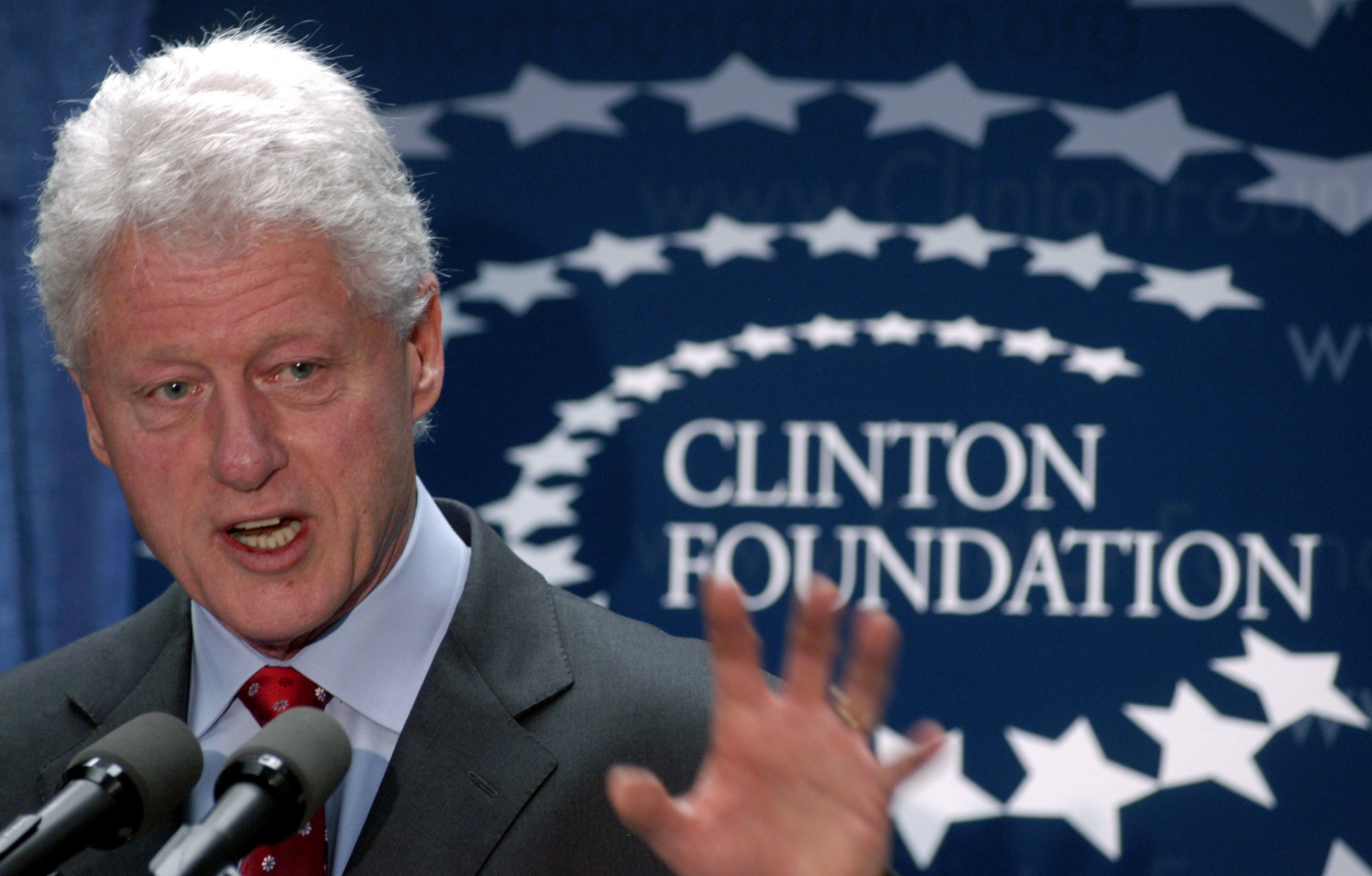
This article was first published on the American Enterprise Institute site.
Hillary Clinton's supporters have two basic lines of defense when it comes to the recent revelations that the State Department gave special access to major Clinton Foundation donors: First, when it comes to granting access to big donors, everybody does it, and second, no one has proved a quid pro quo.
Here's why those arguments don't stand up to scrutiny.
First, while everyone in Washington may give special access to big donors, not everyone has taken tens of millions of dollars from foreign donors.
It is against the law for foreigners to contribute to U.S. political campaigns precisely because Congress wanted to prevent foreign interests from buying access to public officials. According to the Federal Election Commission:
The ban on political contributions and expenditures by foreign nationals was first enacted in 1966 as part of the amendments to the Foreign Agents Registration Act (FARA), an "internal security" statute. The goal of the FARA was to minimize foreign intervention in U.S. elections by establishing a series of limitations on foreign nationals…. In 1974, the prohibition was incorporated into the Federal Election Campaign Act (the FECA), giving the Federal Election Commission (FEC) jurisdiction over its enforcement and interpretation….
The Federal Election Campaign Act (FECA) prohibits any foreign national from contributing, donating or spending funds in connection with any federal, state, or local election in the United States, either directly or indirectly. It is also unlawful to help foreign nationals violate that ban or to solicit, receive or accept contributions or donations from them. Persons who knowingly and willfully engage in these activities may be subject to fines and/or imprisonment….
Additionally, a domestic subsidiary of a foreign corporation (or a domestic corporation owned by foreign nationals) may not donate funds or anything of value in connection with state or local elections if:
These activities are financed by the foreign parent or owner; or
Individual foreign nationals are involved in any way in the making of donations to non-federal candidates and committees.
But the Clinton Foundation was not bound by these restrictions. It was able to accept unlimited contributions from foreign persons and interests—who were then given access to the Clintons—in a way they could not with other public officials or candidates, because doing so would have been against the law.
So yes, politicians of all stripes do give access to big donors. But the Clintons gave access to big foreign donors. Big difference.
Second, when it comes to there being no proof of quid pro quos: to see the absurdity of this line of defense, imagine for a moment what would happen if Donald Trump were elected and tried it.
Let's say that, while in office, his private foundation accepted tens of millions of dollars from Russian oligarchs with close ties to Vladimir Putin and gave them special access to U.S. officials, but he insisted there was no quid pro quo. Democrats would be apoplectic—and rightly so.
But Hillary Clinton does it and...crickets.
When it comes to the Clinton Foundation, there is a lot of evidence of quids and quos, even if the pros are extremely hard to prove. Just read this Wall Street Journal report on the deal then-Secretary Clinton cut with the Swiss bank UBS. That deal let tens of thousands of tax-dodging Americans off the hook, while the Clinton Foundation got a cumulative $600,000 in UBS donations and Bill Clinton got $1.5 million for Q&A sessions, which the Journal reports made UBS "his biggest single corporate source of speech income disclosed since he left the White House."
Did the Journal prove a quid pro quo? No, but you'd have to be pretty naïve to believe that there's no connection. During Watergate, the media embraced the Woodward and Bernstein adage "Follow the money." Today, when it comes to the Clintons, not so much.
So no, everybody does not do what the Clintons did—and failure to prove a quid pro quo does not mean one did not occur. Hillary Clinton said the other day, "There's a lot of smoke but no fire."
Well, if there's no fire, where did the smoke come from?
Marc A. Thiessen is a resident scholar at the American Enterprise Institute.
Uncommon Knowledge
Newsweek is committed to challenging conventional wisdom and finding connections in the search for common ground.
Newsweek is committed to challenging conventional wisdom and finding connections in the search for common ground.
About the writer
To read how Newsweek uses AI as a newsroom tool, Click here.








